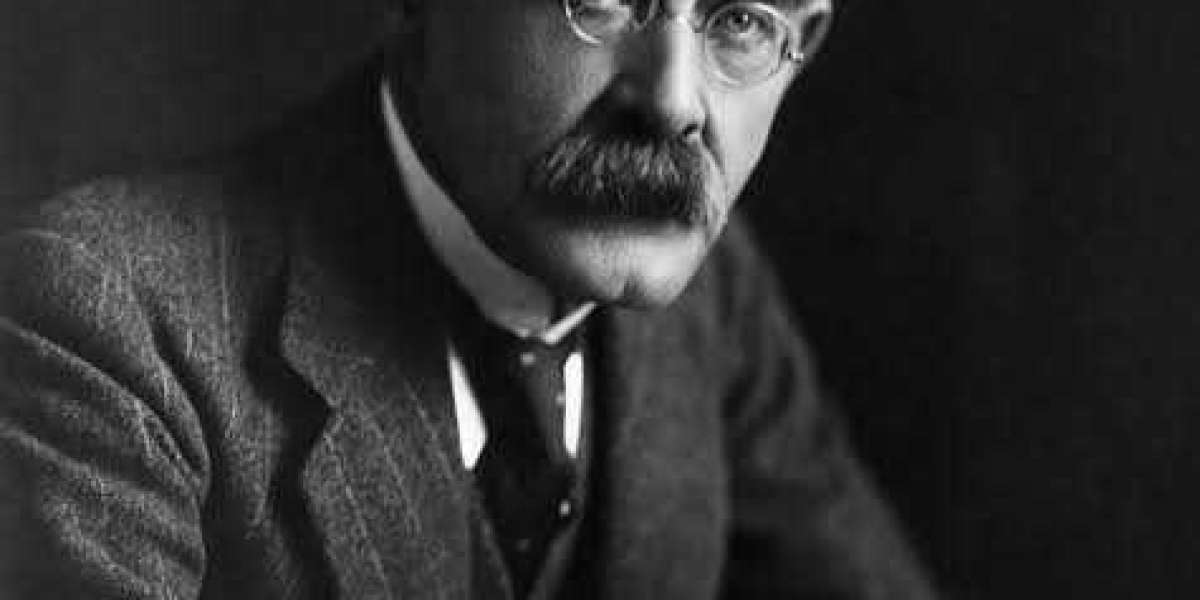Selected poem titled "If—" by Rudyard Kipling from A Choice of Kipling's Verse (1943)
"If you can keep your head when all about you
Are losing theirs and blaming it on you;
If you can trust yourself when all men doubt you,
But make allowance for their doubting too;
If you can wait and not be tired by waiting,
Or being lied about, don’t deal in lies,
Or being hated, don’t give way to hating,
And yet don’t look too good, nor talk too wise:
If you can dream—and not make dreams your master;
If you can think—and not make thoughts your aim;
If you can meet with Triumph and Disaster
And treat those two impostors just the same;
If you can bear to hear the truth you’ve spoken
Twisted by knaves to make a trap for fools,
Or watch the things you gave your life to, broken,
And stoop and build ’em up with worn-out tools:
If you can make one heap of all your winnings
And risk it on one turn of pitch-and-toss,
And lose, and start again at your beginnings
And never breathe a word about your loss;
If you can force your heart and nerve and sinew
To serve your turn long after they are gone,
And so hold on when there is nothing in you
Except the Will which says to them: ‘Hold on!’
If you can talk with crowds and keep your virtue,
Or walk with Kings—nor lose the common touch,
If neither foes nor loving friends can hurt you,
If all men count with you, but none too much;
If you can fill the unforgiving minute
With sixty seconds’ worth of distance run,
Yours is the Earth and everything that’s in it,
And—which is more—you’ll be a Man, my son!
"
My Analysis of the poem titled "If—" by Rudyard Kipling
Rudyard Kipling's "If" is a timeless poem that imparts profound wisdom on navigating life's challenges. I read this poem for the first time when I was in SS3 at school. Structured as a series of conditional statements, it embodies stoicism and resilience - the summary of what a man should be.
The opening line, "If you can keep your head when all about you / Are losing theirs and blaming it on you," sets the tone for the poem's exploration of maintaining composure amidst chaos. Kipling emphasizes the importance of self-control and the ability to think clearly in the face of adversity.
The poem further underscores virtues like patience, determination, and humility. Lines such as "If you can wait and not be tired by waiting" and "If you can meet with Triumph and Disaster / And treat those two impostors just the same" advocate for perseverance and a balanced perspective on success and failure.
Kipling extols the virtue of integrity, urging the reader to "talk with crowds and keep your virtue" and "walk with Kings—nor lose the common touch." These lines emphasize the significance of moral principles and the ability to relate to people from all walks of life.
The concluding stanza reinforces the idea that achieving these qualities will make the individual a well-rounded person. The poem's repetitive structure creates a rhythmic flow, enhancing its didactic quality and making it memorable.
In essence, "If" stands as a beacon of guidance, urging individuals to cultivate resilience, integrity, and humility as they navigate the complexities of life. Kipling's masterful use of language and his keen insights into human nature contribute to the enduring relevance of this poetic gem.





